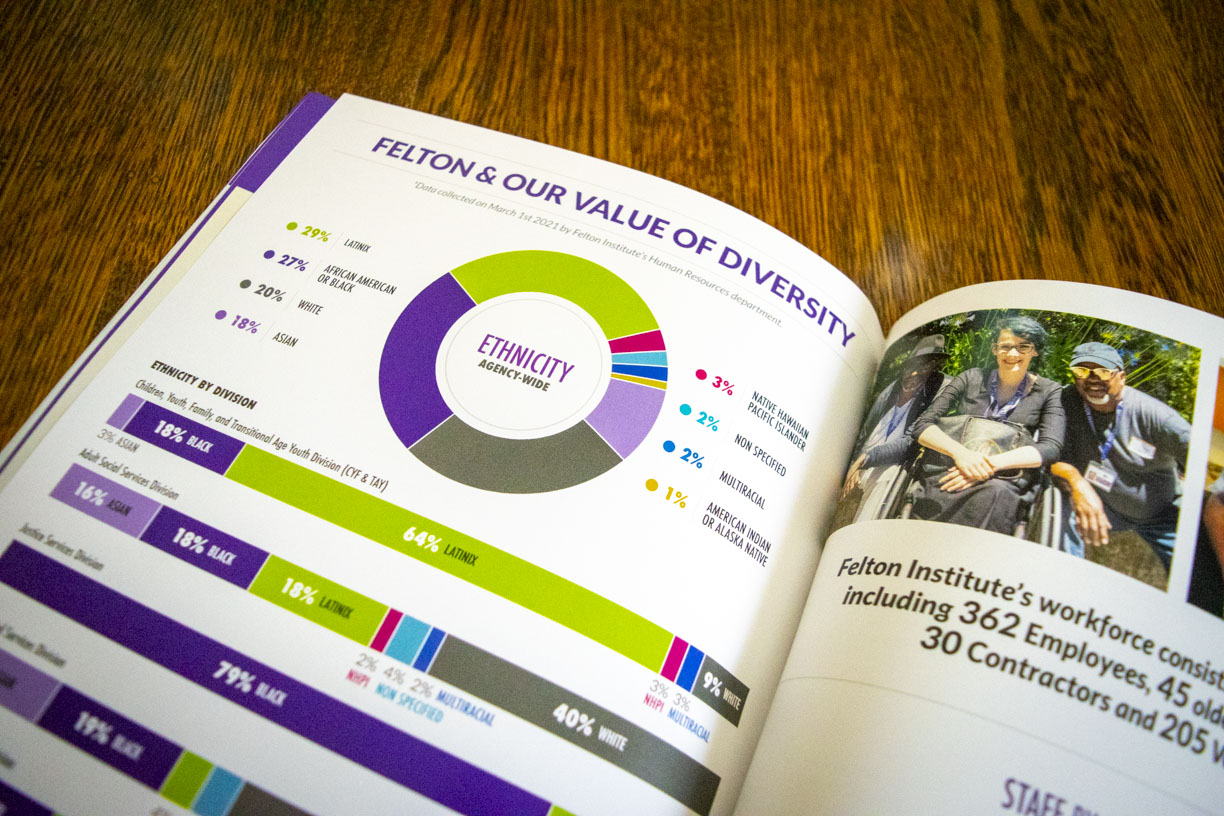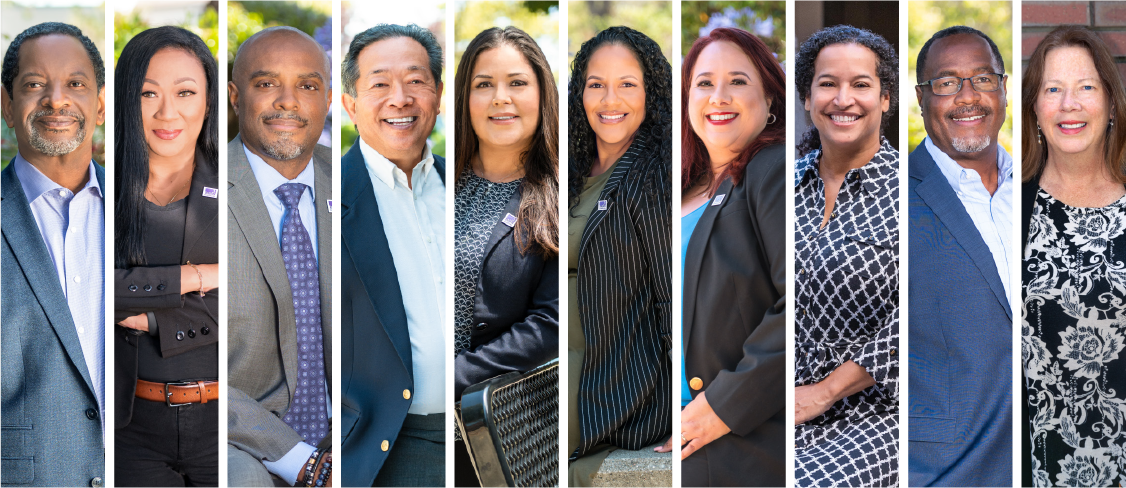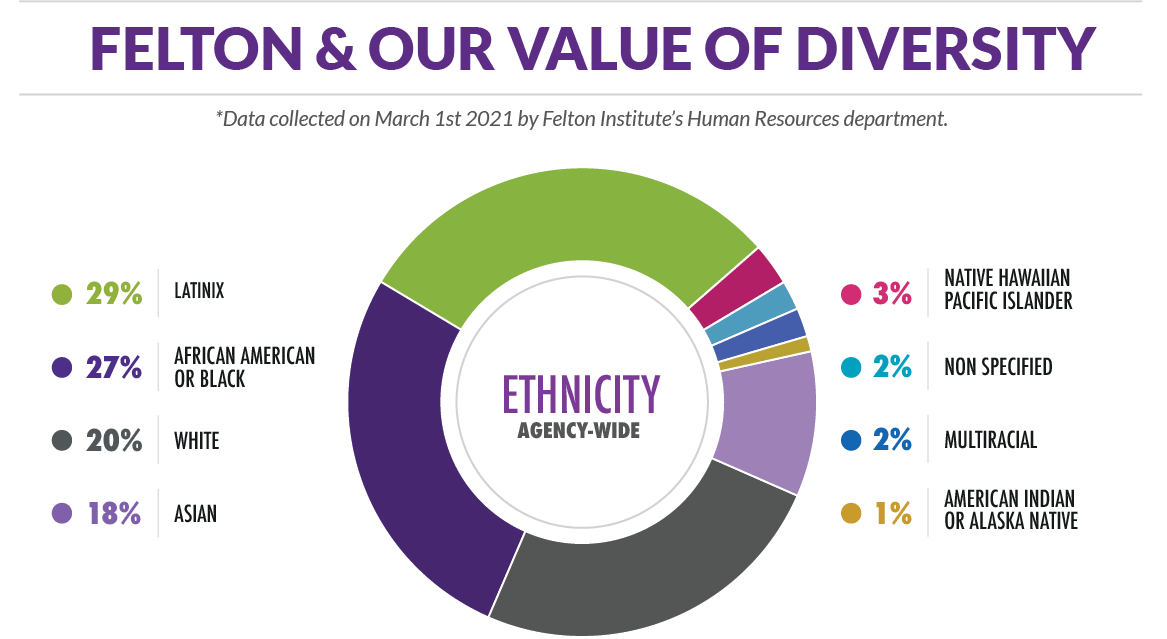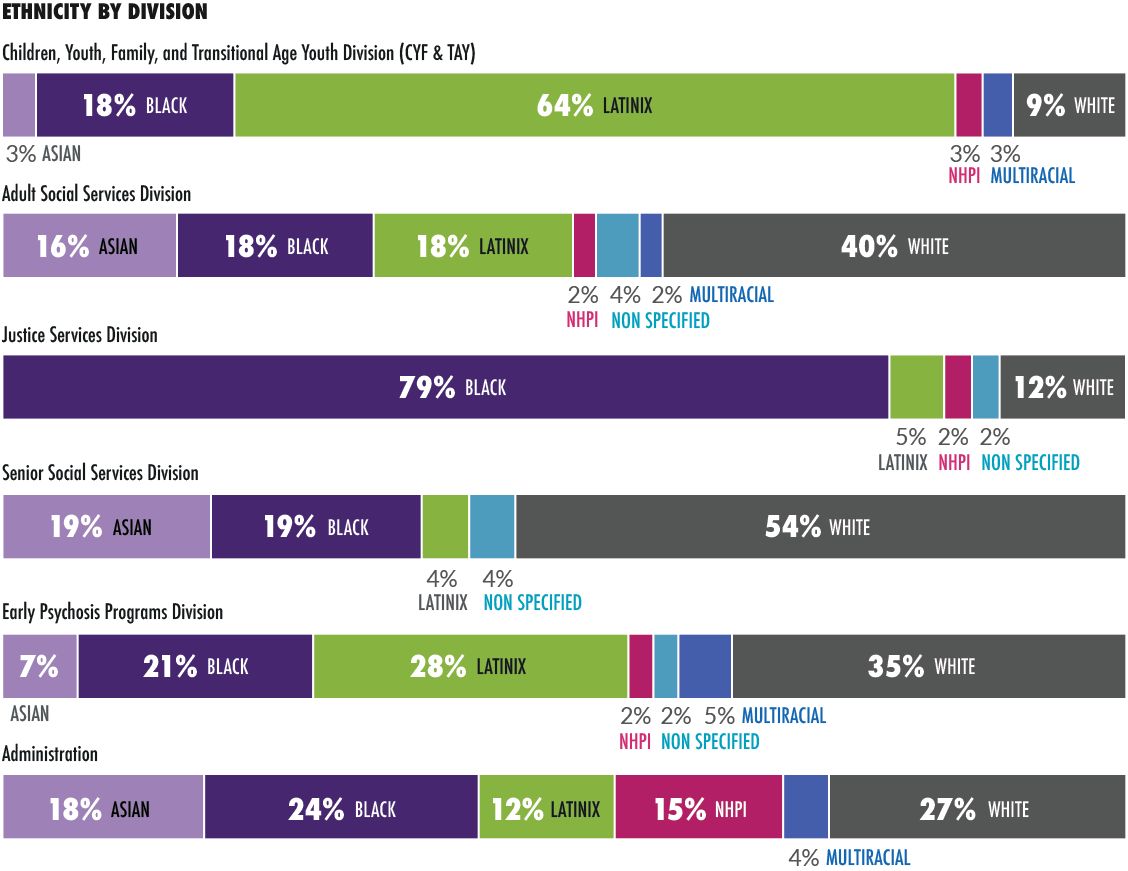Felton Institute, a major service provider of mental and behavioral health, has experienced its most intense growth over the past five years. The nonprofit has expanded services to 5 northern California counties. Its financial ledger has grown 150%. Service programs now include assistance to many differently-abled populations, including the Deaf and Hard of Hearing community, those experiencing homelessness, and those impacted by the justice system.
Felton has become the entity managing the Oakland hub that connects those recently released from incarceration with necessary re-entry resources, as well as counseling men and women in San Francisco’s criminal justice diversion programs.
The executive team leading this dynamic service progression of Felton happens to be comprised predominantly of professionals who identify as people of color, who are led by a President and Chief Executive Officer who identifies as African American. In this month of February that celebrates Black history and cultural achievement, it is worth exploring how Black leadership of Felton Institute can impact an organization that began some 133 years ago as a Caucasian-led organization in the San Francisco community, committed to helping orphans and those in poverty.
Felton Institute Leadership Team (3.9MB PDF)
Leading from Experience
Whenever the opportunity presents itself to sit across from leaders of note, there tends to be a certain mystique floating about the air as if there’s a thin veil of separation. With Felton CEO, Al Gilbert, and his Co-Chief Operating Officer and Chief Financial Officer, Marvin Davis, there is no veil, only a desire to share how important it is to create an environment where all are welcome, diversity is respected, and opportunity is available to anyone willing to excel. With Al‘s experiences of excelling despite biases confronted in various corporate environments, and given Marvin’s proximity to his father’s successful maneuvering around the challenges facing a minority-owned business, both executives are determined to incentivize staff to create an even playing field at Felton where all employees are encouraged, and their diversity is a welcomed attribute.
Some background. Back in 2002, the 113-year-old Felton Institute was an agency struggling to stay afloat. Gilbert was brought on, initially as a turnaround consultant, to help get things back on track. The following two years, Felton restructured and stabilized. In 2004, Davis was brought to help further reshape the fiscal department. Fast forward to today, the organization has grown, offering expansive services to more under-served populations, with a financial capacity that far exceeds any it has had in its history.
“What’s been true about Felton is that we’re committed to serving,” says Gilbert. “Our mission hasn’t changed, and the fact that we serve populations in our own authentic way hasn’t changed. So, all of the experiences reflected in our staff are hugely important.”
One of the main driving forces for the agency’s turnaround and success has been the shared focus on staffing. Gilbert is open and unapologetically strategic about this; investing resources into building out internal teams that reflect the communities they serve. It means recruiting, not only the most talented people, but talented individuals with lived experience. That last part is key, and it matters because it relates directly to the scope and reach of the programs Felton offers. It’s not enough to simply have the knowledge of what people are going through, there must be an understanding as well.
Gilbert uses the CORE (Center for Reentry Excellence) program’s employment of formerly incarcerated employees to drive this point home, finding equivalency in knowledge earned because of incarceration with having attained a master’s degree in understanding the needs of the impacted population:
“When we work with people coming out of the jails and going back into external society, it’s important that I know that I’ve never been incarcerated. Whatever I think incarceration looks like or feels like to individuals who have been in prison for 15 years, I can’t tell what’s fiction from reality. It’s a mistake to think that we understand what that experience is like.”
Creating Opportunities for Growth
Felton strives to be a place at which staff are encouraged to advance. Once the talent has been acquired, the next logical step is retention, particularly at a time when so many companies are having a hard time hiring and keeping employees across the board. Davis says it’s about creating an environment where talent feels safe, comfortable, and encouraged to draw from their lived experience, but also one that purposefully challenges staff to create and expand into other roles as their individual growth and passion would dictate.
“I take it seriously,” Davis says. “It’s incredible to see just the diverse makeup of our leaders… we’re here to help them. We strongly encourage and support a lot of our staff in getting their careers up and running and reaching their goals and milestones.”

Felton Institute 2020 Diversity Report (1.8 MB PDF)
About Felton Institute: Founded in 1889, Felton Institute responds to human needs by providing cutting edge, evidence-based mental health and social services that transform lives. Felton Institute is a tax-exempt organization registered 501(c)(3) nonprofit under EIN 94-1156530.
Offering more than 50 acclaimed and honored programs that address homelessness, mental health, prenatal, adolescent, adult, and senior needs, Felton Institute provides services in San Francisco, Alameda, San Mateo, Marin, and Monterey counties. Felton’s social services and programs utilize the latest scientific research, combining cultural sensitivity, deep respect for client and staff, and a commitment to social justice.
Felton is the oldest non-sectarian and nonprofit social services provider in the City and County of San Francisco. For over a century, Felton Institute has been at the forefront of social service innovation, pioneering new approaches to meet underserved populations’ emerging needs. At the heart of our work is the belief that individuals and families in crisis must have access to services and resources to help them build on their inherent strengths and develop self-sufficiency. www.felton.org


